by Nathaniel R
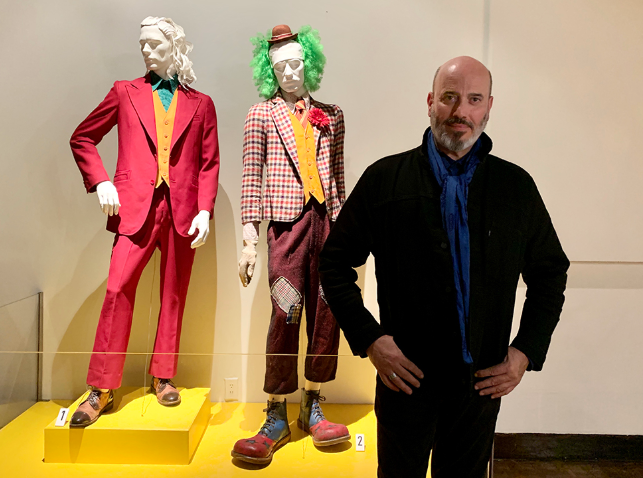 Mark Bridges with Joker costumes
Mark Bridges with Joker costumes
Mark Bridges film career began, as so many have, rather inauspicously. His debut was a now forgotten horror film called Waxwork II: Lost in Time (1992) but there's no keeping talent like his down... though it never hurts to attach yourself straight away to a future god-level auteur like Paul Thomas Anderson. Bridges was on board for Anderson's feature debut Hard Eight (1996) and the celebrated auteur wisely never let go of him thereafter. Inbetween Anderson films (and on them in point of fact) Bridges established himself as a world class costume designer of tremendous versatility, with a gift for not just memorable clothing but character-building.
His latest film, Joker, became his most widely viewed work and then an Academy favourite. We had a chance to talk to the two-time Oscar winner (Phantom Thread, The Artist) this past week about his design process, his favourites from his own filmography, and why he loves his job so much...
[This interview has been condensed and edited for clarity]
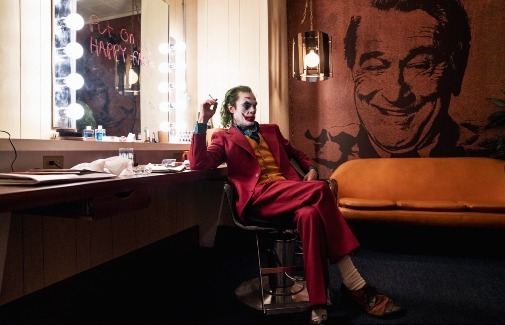
NATHANIEL: The first question I have about your work on Joker is the color scheme. You totally went off book there -- the Joker is ALWAYS green and purple but you were very focused on reds, yellows, mustards. Did you have to go through a lot of executive approvals to switch up a character that iconic?
MARK BRIDGES: No, I just did my thing. It was worked out between Todd [Phillips] and I on how I was going to do it. Everything comes out of what Arthur had access to and not sort of a specialty costume made magically by somebody. It's clothes that you've seen before. Like, take a piece from his haha clown outfit and then put it in the Joker. He wears the maroon pants and the suit when he does his stand up. Ideally you've seen the pieces before -- they're just recombined for this new character.
Arthur’s version of the Joker.
Yes, there was no sort of outside influence that I know of. It was like every other movie --the director and I working out what film we're making, thankfully. I don't do well in those situations where there are, you know, edicts coming down from the heavens.
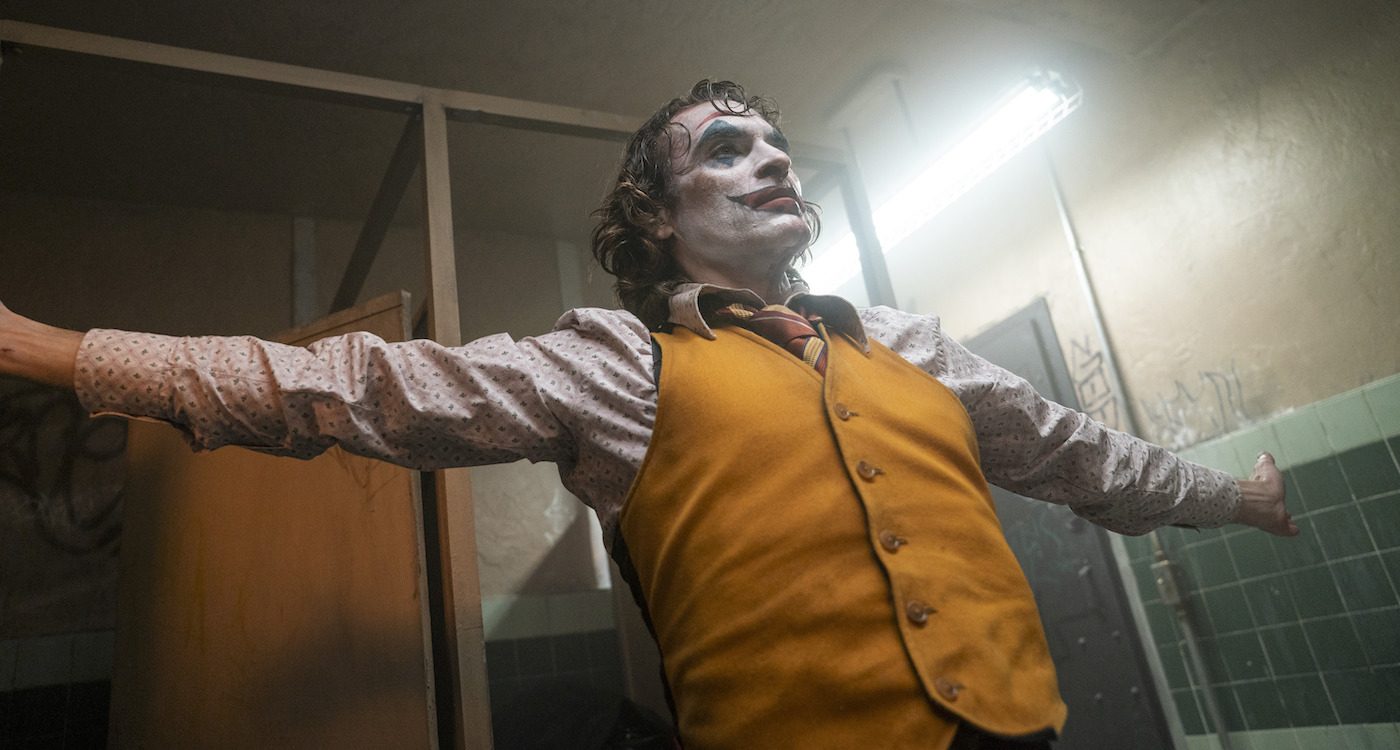
I just assumed there would have been because the IP value of these long standing brands, you know?
I think if it was a different kind of movie or part of a franchise, it might be different. But because we were a standalone, Joker became a directorial choice.
You actually costumed two of the Best Picture nominees this year. You did Marriage Story as well. Those are such diametrically opposed projects, but do you approach all projects the same, through just the character or are you thinking of the genre you're working with?
I pretty much read the script and figure out what the director's vision is. Then I try to get on board with what everybody else is doing, what the production designer is doing, what the DP is doing. I love working with actors and fleshing out a character with them. I bring a lot to the table when I first see them and we talk it out.
Are these like conversations during fittings.
Yeah. You know, I've worked with Joaquin Phoenix three times now. Whether it's Freddy Quell in The Master or Doc Sportello in Inherent Vice or Arthur Fleck in Joker, it’s like ‘who are we creating now?’ How exciting is that for me to get to be a part of these incredible performances, you know, their external shell of that inner life? It's a great job!
Whether it’s Scarlett or Adam or Laura Dern or Frances Conroy or Robert DeNiro, it all comes down to serving the piece, and the character. And then, ‘what film are we making?’
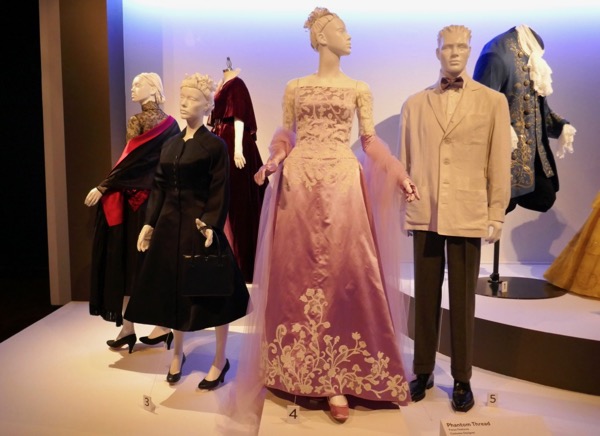
You’ve also done really pictures that people readily view as "costume dramas" like Phantom Thread or The Artist. Do you think directors are coming to you for designs or for character creations?
Hopefully, I have a reputation as somebody who plays well with others. You know what I mean? I bring good stuff to the table and I know how to mesh and work with an actor to deliver a fully fleshed outside and let the actor do the inner work. Hopefully people see that I'm a help-mate in creating a film. That’s I think why they ask for me.
So you think of your work as more of an augmentation of theirs?
Absolutely. And of the director's writing. Luckily I work with a lot of directors who write their own material. Certainly Paul Thomas Anderson. Todd co-wrote Joker. Noah Baumbach I've worked with twice. David O. Russell. I love working with writer/directors..
Do some of them write in visual cues about what the characters are wearing or do they leave that up to you?
It varies from writer to writer. There's varying degrees of how much they really want what they wrote or are they open? It depends on the character, how they saw it, where they're coming from, how they want to play a scene. Putting that together is part of the puzzle of a movie. There are things that are written sometimes that aren't going to play well. And I will mention that. And then another time it's like, ‘You want red shoes? I’ll give you red shoes.’ I'm there for that, too. You know, there are things that I'll go to bat for and try to, uh, maybe talk them out of it or find out where they're coming from.
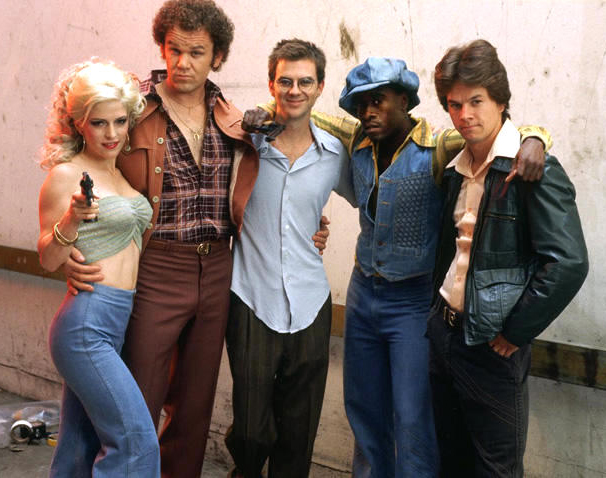 P.T. Anderson and cast on the set of Boogie Nights
P.T. Anderson and cast on the set of Boogie Nights
One of your best showcases early on was Boogie Nights. Those costumes were so delicious. How do you feel about your past films? Do you hold certain ones closer to your heart?
There are some that I'd rather not relive. Certainly Boogie Nights holds up quite well. That was a real labor of love. It was Paul Thomas Anderson’s second feature. It was a period that I had lived through and known quite well. And it was a time when clothing was a lot more fun.
Totally.
So you have a bigger vocabulary to play with and I love that. I remember the whole experience of making the movie Blow (2001) Ted Demme was a great guy, so I look back on that fondly. Our experience in England with There Will Be Blood. The Artist was also an absolute labor of love. We had no idea it would become a Best Picture sensation. When we were making it, we were like, ‘Will anyone see this? Is this going to be languishing in some DVD store in Paris?’ So it was like a $10 million film that we were just trying to do our best with. I'm still happy with that one, too.
I want to talk about contemporary films. They don't often get a lot of praise for their visual craft. One of our writers did a great piece on Laura Dern’s clothing in Marriage Story. So what about you when you're looking at your own Oscar ballot? Do you find contemporary work rewarding to look at?
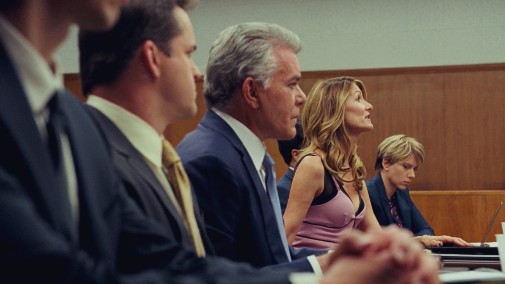
It’s really interesting! That whole thing of the contemporary stuff not getting recognized -- that started when they took it down to one category. When the costume category was black and white and color, you would often get contemporary clothing nominated.
Yeah, that's true.
As soon as it went to just color, it became, you know, "whoever uses most fabric wins".
[Laughter]
I enjoy looking at contemporary work. I often really admire when people use clothes that I haven't seen before or there's a lot of detail or it's just, it's just right for telling me who this person is or if it's impeccably tailored.
I wanted to do Marriage Story because I really enjoy working with Noah. But it was also for the challenge, and I'll do that every once in a while. Like I did 50 Shades of Grey -- I'd never dressed a billionaire before. I wanted to tell that story. I'll do contemporary every once in a while just to see if that language changes. You know what do clothes mean as we become a sweatpants and hoodies society? How do you continue to tell that story as the vocabulary gets smaller?
Joker is sort of inbetween period and contemporary.
Luckily it was '81 where you still had vestiges of the 70s. It was a real transitional time, which I love designing because you've got both decades and that's really fun.
Your next project is the Paul Greengrass film News of the World. Is that a Western?
It’s set in 1870 Texas and it's from a book by Paulette Giles. I wouldn't call it a Western in the sense of shoot outs. But we do ride through Texas and there are guns. That's all I'm going to say about it.
Are you aiming to conquer every single genre?
I guess I'm just trying to do things that I haven't done before to see if I can do it. I love the research. You know, I've been doing this for quite a while and I don't want it to be the same stuff. ‘Alright, let's try to figure out the puzzle of 1870. Let's try to figure out the puzzle of 1981.’ It’s why I did the 1920s. Keep it interesting. Keep it different. Keep learning and expanding.
